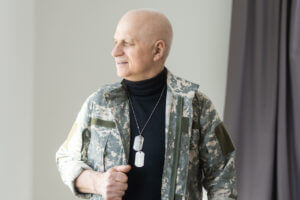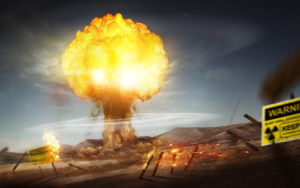Yes, veterans exposed to radiation are compensated if they can prove their illness is connected to their military service. The Department of Veterans Affairs (VA) recognizes certain cancers and diseases as presumptive conditions for “Atomic Veterans” and others exposed to ionizing radiation. Presumptive conditions exist. The VA assumes service connection for specific cancers and diseases
Read MoreThe Medical Legacy of Nuclear Testing in the Marshall Islands
In short, Understand the key health benefits available to those affected by nuclear testing. Take steps to document your exposure and seek medical care. Consider the long-term implications and resources for support. From 1946 to 1958, the United States conducted nuclear tests in the Marshall Islands, significantly impacting the health of the Marshallese people and
Read MoreA Veteran’s Guide to Filing a Radiation Exposure Claim
In short, Learn about VA benefits for radiation exposure. Discover who is eligible for benefits and the steps to file a claim. Understand the link between radiation exposure and cancer. Veterans who lived in specific areas and were exposed to radiation from atmospheric nuclear testing may be eligible for VA cancer benefits. This guide explains
Read MoreNavigating Cancer Benefits for Downwinders Affected by Enewetak Atoll Radiation
In short: Health Risks at Enewetak: The atoll is still radioactive, causing health problems for veterans and residents. Veteran Benefits: Programs like RECA offer help, but many struggle to apply. Family Challenges: Families face health issues, with some support from groups and lawyers. Enewetak Atoll radiation exposure has caused serious health problems for veterans and
Read MoreConnecting Atmospheric Nuclear Testing and Thyroid Cancer
In short: Radiation Spread Worldwide: Nuclear tests in the 1940s-1960s polluted food and water. Kids Were Most at Risk: Their thyroids absorbed radiation, leading to cancers years later. Thyroid Cancer Is Treatable: Most patients recover and live normal lives with care. Thyroid cancer from radiation exposure is serious. It is one of the most severe
Read MoreVA Compensation for Cancer Linked to Bikini Atoll Nuclear Testing
Between 1946 and 1958, the Bikini Atoll nuclear testing exposed thousands of U.S. military members to harmful radiation. They did not know the health risks at the time. Many later developed cancers linked to this radiation. Veterans from these tests deserve support for health problems caused by their service. The VA offers medical care and
Read MoreFAQs About Radiation Exposure and Veteran Compensation
Veteran compensation for radiation exposure impacts many military members and their families. Radiation exposure occurred during various military operations and tests. Between the 1940s and 1990s, the government conducted many nuclear tests. Veterans who took part in these tests or served in contaminated areas may qualify for compensation. However, the process can be confusing. This
Read MoreWays to Support Your Loved One Applying for Veteran Compensation Benefits
Veterans have made big sacrifices while serving our country. Many now face serious health problems because of dangerous conditions during their service. One major example is the Bikini Atoll nuclear testing in the Marshall Islands. These tests caused long-term health issues. One way veterans can get help is through Veteran Compensation Benefits. If your loved
Read MoreHow Bikini Atoll Nuclear Testing Has Impacted Generations
From 1946 to 1958, the United States used Bikini Atoll in the Marshall Islands for nuclear testing. This small and remote island became the site of 23 powerful explosions. These tests changed everything. They harmed the people who lived there, damaged the land and ocean, and affected future generations. Even today, the name “Bikini Atoll”
Read MoreSupport Resources for Atomic Veterans and Families
The experiences of atomic veterans are a solemn part of history that deserves attention and advocacy. Atomic veterans, defined as members of the military who participated in nuclear testing or were exposed to radiation during their service, often face unique health challenges. Families of atomic veterans also endure the lingering impacts, including emotional and financial
Read More









